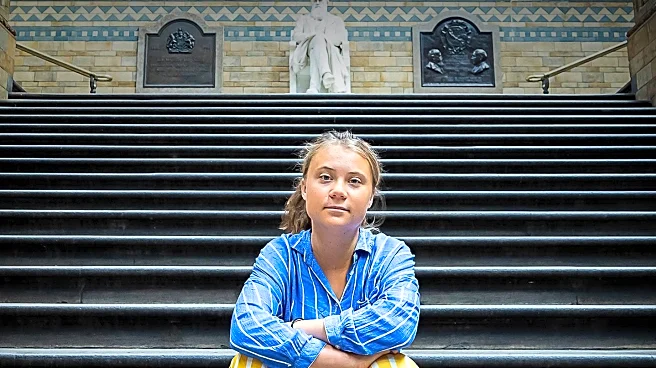What's Happening?
Academy Award-nominee Bérénice Bejo is set to portray Alice Guy Blaché, the world's first female director, in a new series titled 'Alice.' The series is a collaboration between HBO Max and France Télévisions, marking the first time Guy Blaché's story will be depicted on screen. The narrative follows her journey from Paris's Belle Époque to New York and early Hollywood, showcasing her roles as a filmmaker, entrepreneur, wife, and mother. The series highlights her battles and pursuit of recognition during the birth of modern cinema. The cast includes Thibaut Evrard, Oscar Lesage, Irène Jacob, and Yannick Choirat, with the series co-directed by Virginie Verrier and Guillaume Lonergan.
Why It's Important?
Alice Guy Blaché's story is significant as it sheds light on a pioneering figure in cinema who has been largely erased from history. Her contributions to the film industry as a female director during a time when women were rarely seen in such roles are profound. The series aims to inspire by showcasing her strength, artistic vision, and determination. This project reflects a broader commitment to telling universal and uplifting stories, while also highlighting the importance of recognizing historical figures who have shaped industries and cultural narratives.
What's Next?
The series 'Alice' is expected to bring renewed attention to Alice Guy Blaché's legacy, potentially sparking interest in her work and influence in the film industry. As the series is co-produced by HBO Max and France Télévisions, it may lead to further collaborations between international production companies, promoting diverse storytelling. The reception of the series could influence future projects that focus on historical figures, particularly women who have made significant contributions to their fields.
Beyond the Headlines
The portrayal of Alice Guy Blaché in 'Alice' may encourage discussions about gender roles in the film industry, both historically and in contemporary settings. It highlights the challenges faced by women in creative fields and the importance of acknowledging their contributions. The series could also prompt a reevaluation of how history is recorded and the figures who are celebrated, potentially leading to more inclusive narratives in media.









